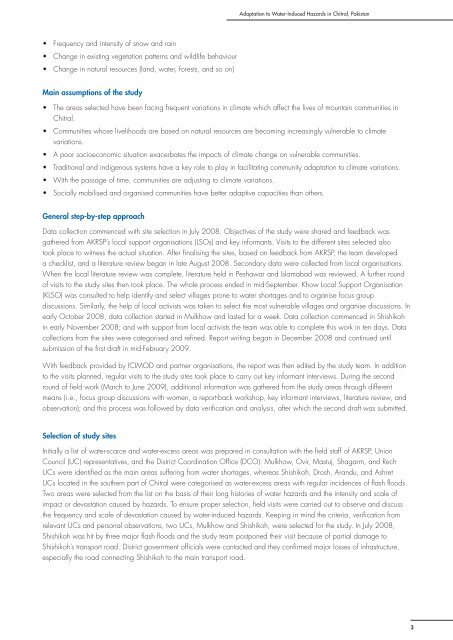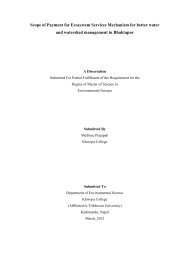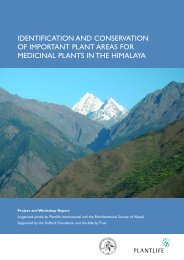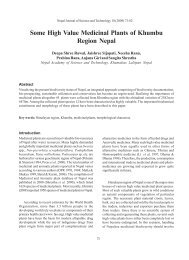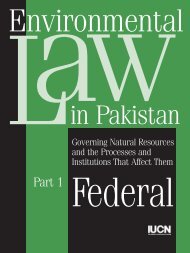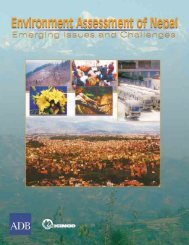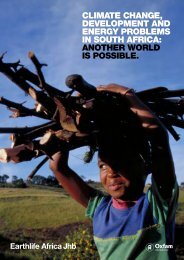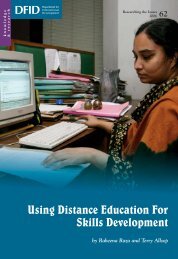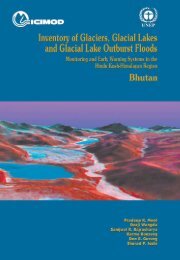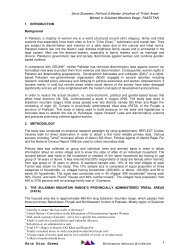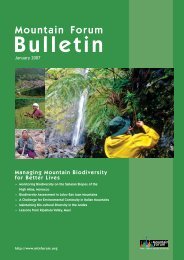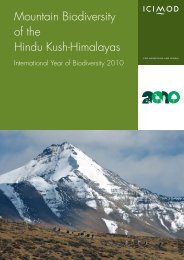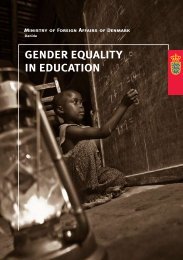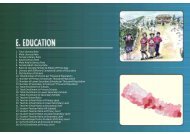Full Document - Himalayan Document Centre - icimod
Full Document - Himalayan Document Centre - icimod
Full Document - Himalayan Document Centre - icimod
You also want an ePaper? Increase the reach of your titles
YUMPU automatically turns print PDFs into web optimized ePapers that Google loves.
Adaptation to Water-Induced Hazards in Chitral, Pakistan• Frequency and intensity of snow and rain• Change in existing vegetation patterns and wildlife behaviour• Change in natural resources (land, water, forests, and so on)Main assumptions of the study• The areas selected have been facing frequent variations in climate which affect the lives of mountain communities inChitral.• Communities whose livelihoods are based on natural resources are becoming increasingly vulnerable to climatevariations.• A poor socioeconomic situation exacerbates the impacts of climate change on vulnerable communities.• Traditional and indigenous systems have a key role to play in facilitating community adaptation to climate variations.• With the passage of time, communities are adjusting to climate variations.• Socially mobilised and organised communities have better adaptive capacities than others.General step-by-step approachData collection commenced with site selection in July 2008. Objectives of the study were shared and feedback wasgathered from AKRSP’s local support organisations (LSOs) and key informants. Visits to the different sites selected alsotook place to witness the actual situation. After fi nalising the sites, based on feedback from AKRSP, the team developeda checklist, and a literature review began in late August 2008. Secondary data were collected from local organisations.When the local literature review was complete, literature held in Peshawar and Islamabad was reviewed. A further roundof visits to the study sites then took place. The whole process ended in mid-September. Khow Local Support Organisation(KLSO) was consulted to help identify and select villages prone to water shortages and to organise focus groupdiscussions. Similarly, the help of local activists was taken to select the most vulnerable villages and organise discussions. Inearly October 2008, data collection started in Mulkhow and lasted for a week. Data collection commenced in Shishikohin early November 2008; and with support from local activists the team was able to complete this work in ten days. Datacollections from the sites were categorised and refi ned. Report writing began in December 2008 and continued untilsubmission of the fi rst draft in mid-February 2009.With feedback provided by ICIMOD and partner organisations, the report was then edited by the study team. In additionto the visits planned, regular visits to the study sites took place to carry out key informant interviews. During the secondround of fi eld work (March to June 2009), additional information was gathered from the study areas through differentmeans (i.e., focus group discussions with women, a report-back workshop, key informant interviews, literature review, andobservation); and this process was followed by data verifi cation and analysis, after which the second draft was submitted.Selection of study sitesInitially a list of water-scarce and water-excess areas was prepared in consultation with the fi eld staff of AKRSP, UnionCouncil (UC) representatives, and the District Coordination Offi ce (DCO). Mulkhow, Ovir, Mastuj, Shagarm, and RechUCs were identifi ed as the main areas suffering from water shortages, whereas Shishikoh, Drosh, Arandu, and AshretUCs located in the southern part of Chitral were categorised as water-excess areas with regular incidences of fl ash fl oods.Two areas were selected from the list on the basis of their long histories of water hazards and the intensity and scale ofimpact or devastation caused by hazards. To ensure proper selection, fi eld visits were carried out to observe and discussthe frequency and scale of devastation caused by water-induced hazards. Keeping in mind the criteria, verifi cation fromrelevant UCs and personal observations, two UCs, Mulkhow and Shishikoh, were selected for the study. In July 2008,Shishikoh was hit by three major fl ash fl oods and the study team postponed their visit because of partial damage toShishikoh’s transport road. District government offi cials were contacted and they confi rmed major losses of infrastructure,especially the road connecting Shishikoh to the main transport road.3


